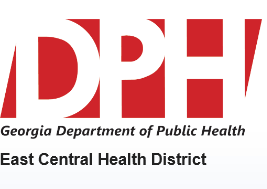Our Mission:
To incorporate strategies of integrated mosquito control management that are effective, practical, environmentally safe and protect the health of Richmond County residents. In addition, to prioritize public education to give citizens the knowledge they need to be our partners in personal protection from mosquitoes. We serve to prevent large biting mosquito populations and the diseases that they transmit.
Our Program:
Our Team:
Leadership:
Important Mosquito Information:
- Mosquitoes lay their eggs in standing water. To keep populations low, please remove standing water in your yard and local parks if possible. Dump bird baths once per week, and pet bowls, dump wheelbarrows, tires, tarps and kiddy pools after rain, etc. Water collected in a bottle cap can produce mosquitoes. Tip or toss any item that can hold an inch of standing water to prevent mosquito problems near your home.
- Wear repellents that contain DEET or Oil of Lemon Eucalyptus to effectively protect yourself from mosquitoes.
- Avoid activity at dusk and dawn as most mosquito species are most active during this time.
- Wear protective, lightweight long sleeves and pants to protect yourself from mosquito bites.
2024 Letter to Residents:
April 2, 2024
Richmond County Residents:
In previous years, our department has responded to most customer service requests submitted through 311 by visiting residences and treating adult mosquitoes with a truck-mounted spray. Starting last year, we are changed the way we respond to service requests for multiple reasons:
1) The product we spray is designed to kill mosquitoes flying in the immediate area at the time of treatment, but it does not continuously kill mosquitoes for days or weeks at a time. Consequently, sprays will not continuously prevent mosquitoes on your property. As a result, we will use sprays in cases where extremely large numbers of mosquitoes occur to help break their life cycle and reduce their numbers until a longer-lasting solution can take effect.
2) Overuse of these sprays encourages resistance in our local mosquito populations when over-applied or applied in areas where they are not needed. If the mosquitoes develop enough resistance, then sprays will not work in the future. We are currently working to establish how much resistance exists in the area, as the development of resistance to these products is fairly common.
We will still use sprays, but we have stepped up the many other tools in our mosquito control toolbox to provide more effective service to our customers:
1) Inspections. We are excited to offer a free residential mosquito inspection service to our customers. Moving forward, our technicians thoroughly inspect each property they visit before taking any other action.
2) Consultations. Our technicians will consult with you about their inspection findings while practicing social distancing to prevent the spread of COVID-19. Mosquitoes breed in standing water, so for instance, if a technician were to find standing water on your property, they would advise you to dump it out; this is source reduction. Doing so would eliminate a potential breeding site, which would prevent biting adult mosquitoes, eliminating the need for future mosquito control treatments such as truck-mounted sprays.
3) Larvicides. Alternatively, if the technician finds immature mosquitoes, called larvae, he/she can treat them with a larvicide, which kills immature mosquitoes in water and prevents and biting adults. Source reduction and larvicides are much longer-lasting actions than sprays, as source reduction can permanently eliminate a breeding site, and larvicides continuously kill immature mosquitoes for up to a month.
4) Adulticides. Finally, we may spray your property to treat mosquitoes, but only if the number of adult mosquitoes is large enough that our technician determines a spray will substantially reduce the number of adult mosquitoes present. The technician will not spray your property if the best way to reduce mosquito numbers is through source reduction or a larvicide treatment, or if they do not observe enough adult mosquitoes to warrant a spray.
One of the goals of our department is to keep mosquito populations low enough to prevent mosquito-borne illnesses. However, we cannot eliminate all mosquitoes, so as always, please remember to adopt the following healthy habits to protect yourself from mosquito bites:
1) When possible, limit your time outdoors during dawn and dusk when mosquitoes are most active.
2) Wear light-colored, long-sleeved shirts and long, loose-fitting pants.
3) Wear a CDC-approved insect repellent when outdoors.
4) Ensure that window and door screens are tightly fitted and in good repair to prevent mosquitoes from getting into your home.
If you have any questions, comments, or requests, please call 311, or contact Mindy KrutyCrothers at (762) 685-6068 or Mindy.Kruty-Crothers@dph.ga.gov, and we will gladly do our best to help.
Thank you for your understanding and cooperation as we refine these new policies to better serve our community.
Sincerely,
Mindy Kruty-Crothers, MPH BS
Director of Mosquito and Vector Surveillance
Upcoming Events:
Check back for announcements for upcoming appearances of RCMC at local events!
LINKS TO WEBSITES
Georgia Mosquito Control Association
South Carolina Mosquito Control Association
Mid Atlantic Mosquito Control Association
American Mosquito Control Association
Concerned about Zika? Here’s what you need to know: https://ecphd.com/zika-faqs/









